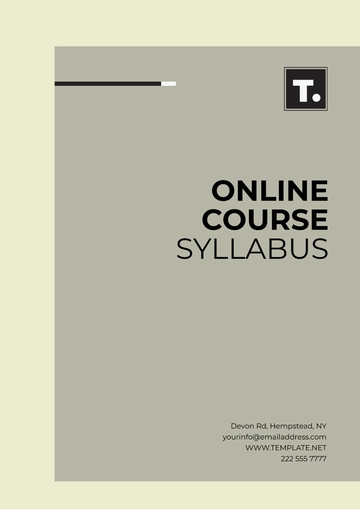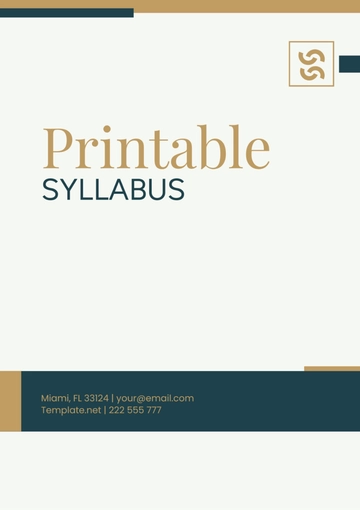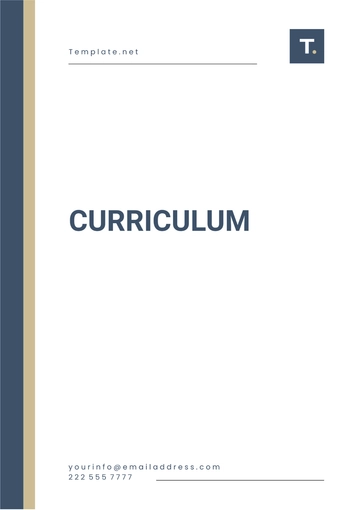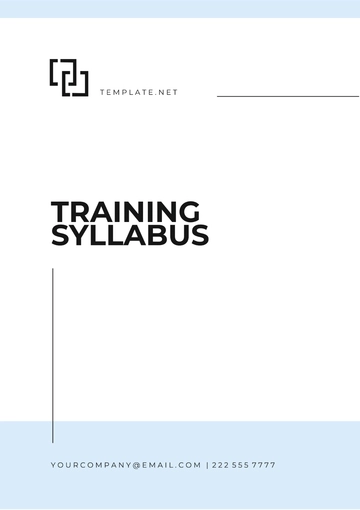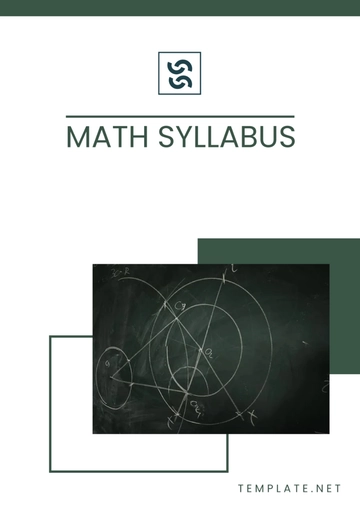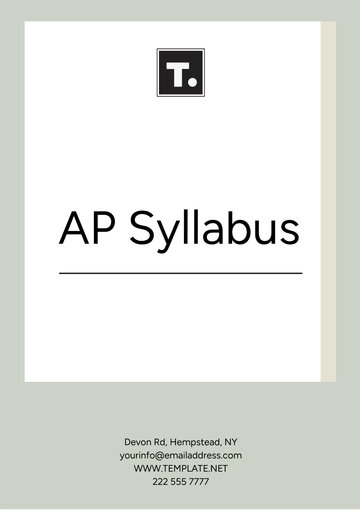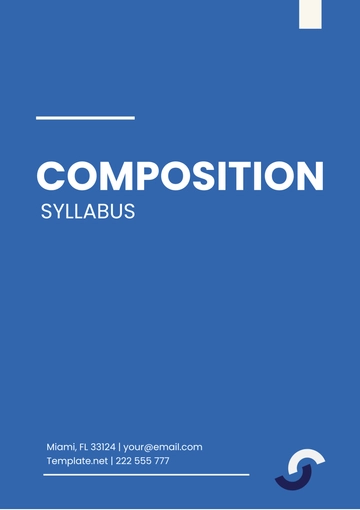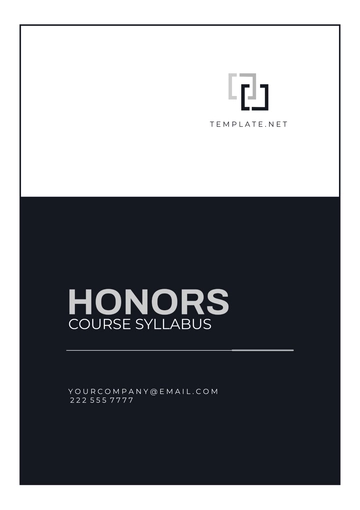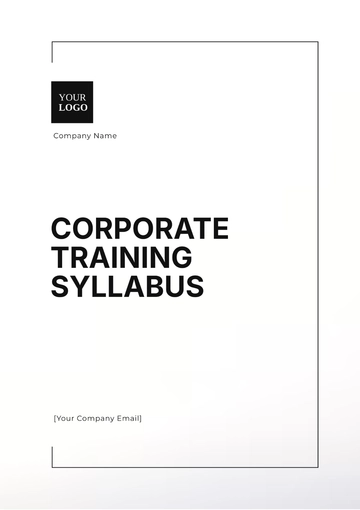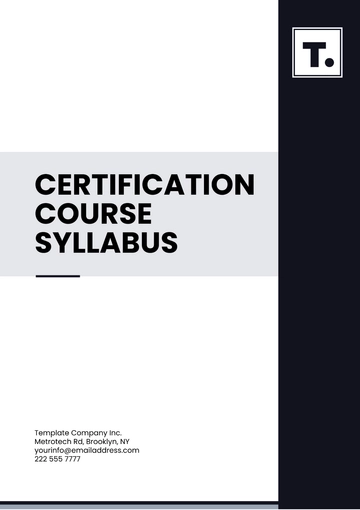Free Keyboarding Syllabus

KEYBOARDING COURSE
Course Title | [COURSE TITLE] |
Course Code | [COURSE CODE] |
Institution Hours | [INSTITUTION HOURS] |
Class Location | [CLASS LOCATION] |
Class Time | [CLASS TIME] |
Class Duration | [DATE] - [DATE] |
1. Course Description
This course invites students to dive deep into the captivating world of screenwriting. Open the door to your creative mind by exploring story structure, character development, dialogue, formatting, and industry practices. Learn to weave these elements together to craft compelling stories for the big screen.
2. Instructor Information
Instructor Name: [YOUR NAME]
Contact: [YOUR EMAIL]
3. Learning Objectives
Understand and master the basic principles of screenwriting.
Develop strong and engaging characters that propel your story.
Master the rules of screenplay formatting and industry standards.
Learn to write compelling dialogue that drives your narrative and reveals character.
Gain an understanding of the industry practices, including pitching, selling, and protecting your scripts.
4. Course Schedule
Week | Topics | Reading |
|---|---|---|
1 | Introduction to Screenwriting | Chapter 1, "In the Blink of an Eye" |
2 | Story Structure and Plot Development | Chapter 2, "The Hero's Journey" |
3 | Character Development and Arcs | Chapter 3, "Creating Memorable Characters" |
4 | Dialogue Writing Techniques | Chapter 4, "Writing Dialogue" |
5 | Screenplay Formatting and Industry Standards | Chapter 5, "The Screenwriter's Format" |
6 | Crafting Compelling Scenes | Chapter 6, "Building Blocks of a Scene" |
7 | Understanding Genre and Tone | Chapter 7, "Exploring Genre and Tone" |
8 | Writing for Visual Storytelling | Chapter 8, "Visual Storytelling Techniques" |
9 | Pitching and Selling Your Screenplay | Chapter 9, "The Art of the Pitch" |
5. Required Reading and Materials
“Screenplay: The Foundations of Screenwriting” by Syd Field
“Story: Substance, Structure, Style, and the Principles of Screenwriting” by Robert McKee
“The Screenwriter's Bible: A Complete Guide to Writing, Formatting, and Selling Your Script” by David Trottier
Recommended screenplays for study (to be provided)
Film viewing list (to be provided)
6. Assignments and Assessments
Weekly writing exercises covering various aspects of screenwriting.
A film analysis paper focused on character development and story structure.
An original screenplay (short film) that demonstrates mastery of formatting and storytelling principles.
A script revision assignment.
A final project that involves pitching your screenplay.
7. Course Policies
All assignments are due on the assigned date; late submissions will face penalties.
Active participation in all discussions and activities is essential.
Academic Honesty is strictly enforced; plagiarism will result in serious consequences.
Respect for others’ ideas and perspectives is paramount in all interactions.
It is the student’s responsibility to stay updated with all communications related to the course.
8. Grading Policy
Grading Component | Weight |
|---|---|
Assignments | 40% |
Screenplay | 30% |
Film Analysis Paper | 20% |
Class Participation | 10% |
Disclaimer
Please note that while every effort has been made to ensure the accuracy and completeness of the syllabus, adjustments may be required throughout the semester to enhance the learning experience. Any modifications will be communicated promptly to students via email or during class sessions. Your flexibility and cooperation are appreciated as we strive to provide you with the best possible learning environment.
- 100% Customizable, free editor
- Access 1 Million+ Templates, photo’s & graphics
- Download or share as a template
- Click and replace photos, graphics, text, backgrounds
- Resize, crop, AI write & more
- Access advanced editor
Discover the ultimate solution for crafting comprehensive keyboarding syllabi with ease! Introducing the Keyboarding Syllabus Template from Template.net. This editable and customizable resource empowers educators to tailor syllabi to their exact needs. Seamlessly editable in our Ai Editor Tool, it streamlines syllabus creation for efficient teaching preparation.



